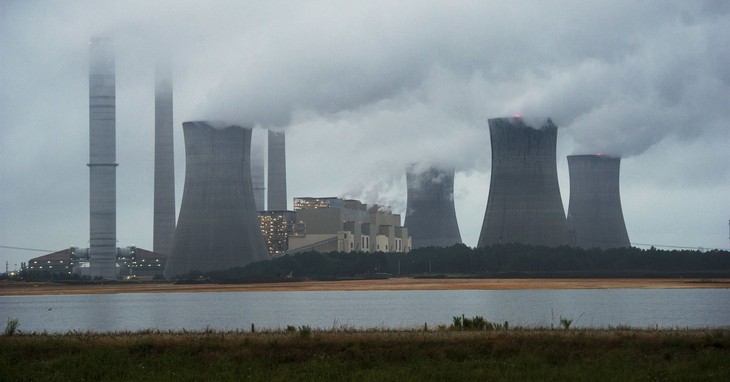To cap off its term, the Supreme Court handed down a much-awaited decision in West Virginia v. the Environmental Protection Agency. The decision, which severely limits the EPA’s presumed authority over carbon emissions, is being celebrated as a big win for those wishing to see regulatory power curbed.
In its decision, the Court — via Chief Justice Roberts — determined that “Congress did not grant EPA in Section 111(d) of the Clean Air Act the authority to devise emissions caps based on the generation shifting approach the Agency took in the Clean Power Plan,” and that on the question of “whether the ‘best system of emission reduction’ identified by EPA in the Clean Power Plan was within the authority granted to the Agency in Section 111(d) of the Clean Air Act,” the answer is a resounding “No.”
The Court’s decision is more than just a win for the energy industry, however. Based on the Court’s ruling, we are looking at a future where the legislative branch of the government actually has to legislate.
In today’s ruling, the Supreme Court has decided the legislative branch, not the executive, is actually in charge of rule-making. A federal bureaucracy has only the power it is specifically granted by Congress. The decision reaffirms what is specifically stated in the Constitution as far as the powers of each branch go.
Article I of the Constitution specifically states that “All legislative powers herein granted shall be vested in a Congress of the United States,” while Article II tasks the executive branch with taking care that “laws be faithfully executed.” There is a clear separation of powers between the two branches, and there is Supreme Court precedent that Congress isn’t allowed to “abdicate or to transfer to others the essential legislative functions with which it is thus vested,” as determined in A. L. A. Schechter Poultry Corp. v. United States.
This gets to the heart of the problem that led us to today’s decision. For decades now, Congress has been doing just that. They have passed laws just vague enough for federal agencies to interpret however they like, essentially allowing agencies that are part of the executive branch to create new laws and rules from seemingly nothing. The lines between the branches blur, and the checks and balances in place in the Constitution are weakened as the executive branch bypasses the legislative branch to do what it wants.

For years now, conservatives have been telling Republicans in the House to use the power of the purse to curtail executive branch excesses. They have not. They’ve been tasked by their voters to stop runaway regulatory regimes. They’ve abdicated on that front. One can only assume that Congressional Republicans are just too lazy to actually have those fights anymore, and because of that, the country suffers.
The EPA tried very hard to expand its regulatory power well beyond what the Clean Air Act of the 1970s allowed. They would likely not have been emboldened to do so had Congress actually fought to keep its power rather than delegate it away. Thus, the question as to whether the agency can or cannot do this comes before the Supreme Court, which, at this point, is so exhausted from questions that should really be covered by Congress’s power that they are now openly saying “Go to Congress to get what you want — like you’re supposed to.” It’s not a matter of overturning the poorly-decided Chevron case or anything like that. It’s just a straight-up demand that Congress do its job and for federal agencies to stop overreaching.
This, whether the left likes it or not (and they really, really don’t) is what democracy is actually supposed to look like. It’s not up to the federal bureaucracy to save the planet, and it’s not up to the executive branch to decide how to go about it. It’s up to the voters to elect the people they want to pass the policies they want to see put in place. And if enough people who care about the environment can get the right politicians elected, then something can be done about it. If you can’t win those elections, then revise your campaign strategy and try again.
That’s how it’s supposed to be. That’s how you’ll actually get the change you want. You certainly won’t get it by circumventing the Constitution to over-regulate the rest of the country.













Join the conversation as a VIP Member